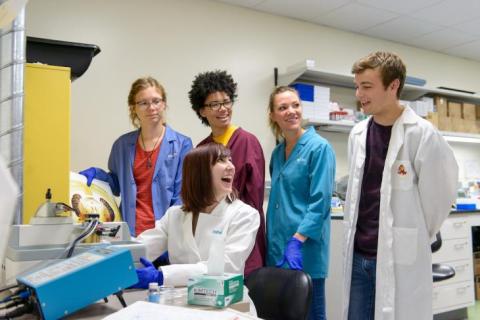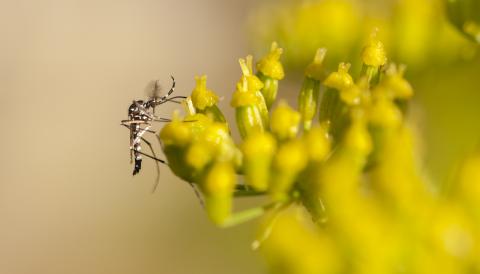The 1000 Genome Project Consortium publishes final results in Nature
The 1000 Genome Project Consortium publishes final results in Nature

The 1000 Genomes Project Consortium has released an article in Nature detailing the completion of seven years of work titled, “A global reference for human genetic variation.” Melissa Wilson Sayres, Assistant Professor in the School of Life Sciences and faculty of the Center for Evolution and Medicine is one of the contributors to this substantial undertaking, and the sole researcher from Arizona State University involved in this multi-university (and multi-continent) project.
The Project has reconstructed the genomes of 2,500 individuals from 26 populations. These genome maps will provide data for many future studies, and help with identifying neutral variants of rare-disease cohorts. This study has uncovered just how genetically unique we each are, finding more than 88 million regions that vary across the human genome.
Wilson Sayres continues, "The real take-home for me is that this research drives confirms that even with the tremendous genetic diversity uncovered, each of our genomes is more than 99.9% identical." Wilson Sayres is a computational biologist whose main research interests include sex-based biology, the evolution of sex chromosomes, differences in mutation rates, and how changes in population history affect chromosomes.
You may read the research published in Nature, here.
Other features about this research appear in Wired and The University of Maryland News.


